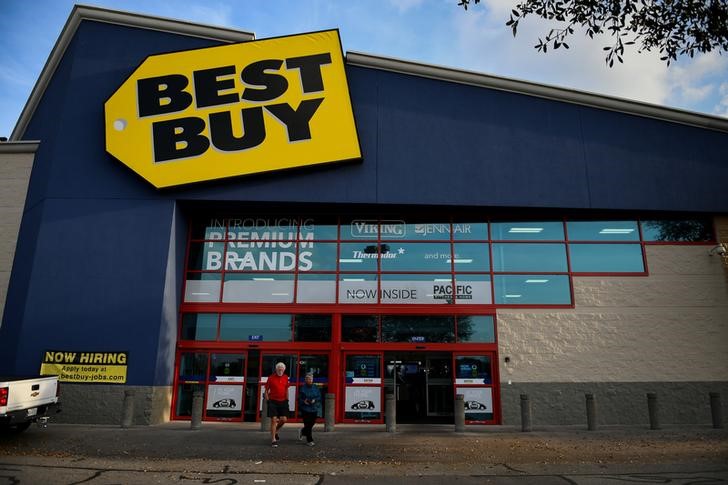Microvast Holdings announces departure of chief financial officer
On Friday, KeyBanc Capital Markets adjusted its financial estimates for companies in the Furniture/Furnishings, Consumer Electronics, and Dollar/Discount sectors, citing increased exposure to newly announced tariffs. The changes reflect the immediate effects on profit margins following the "Liberation Day" tariffs but do not account for the potential broader impacts on consumers and the economy.
KeyBanc analysts anticipate a challenging second and third quarter for retailers due to significant margin and sales risks. They expressed hope for fiscal stimulus and tax reforms to mitigate the adverse effects of the tariffs. Such measures could include corporate tax cuts and an increase in the child tax credit. Absent these interventions, KeyBanc warns of further downside risks to their estimates for later in 2025 and into 2026.
The tariffs, which are broad-based, disproportionately affect certain sectors. KeyBanc notes that Wayfair (NYSE:W), Williams-Sonoma (NYSE:WSM), and RH (NYSE:RH) are particularly vulnerable due to their high production exposure in Asia. Wayfair is now subject to a 43% weighted tariff rate, with RH at 34% and Williams-Sonoma at 26%, primarily due to the spike in China’s tariff rate from 20% to 54%.
In the Consumer Electronics sector, Best Buy (NYSE:BBY) faces a new weighted tariff rate of approximately 33%, with around 20% of its products sourced from Mexico, where tariff rates are currently uncertain. The company, which InvestingPro data shows has maintained dividend payments for 23 consecutive years, currently offers a substantial 6.11% dividend yield. Despite recent challenges reflected in a 14% decline over the past week, Best Buy maintains a GOOD financial health score and appears undervalued according to InvestingPro’s Fair Value analysis. Among Dollar/Discount stores, Five Below (NASDAQ:FIVE) sees a significant increase in its tariff rate to around 36%, while Dollar Tree (NASDAQ:DLTR) has a weighted average tariff rate of 22%.
Target (NYSE:TGT), with about half of its products sourced internationally, faces a lower estimated weighted average tariff rate of 19%. KeyBanc’s analysis suggests that these companies will need to navigate the challenges posed by the new tariff environment, which could have substantial implications for their financial performance. For investors seeking deeper insights into how tariffs affect retail sector valuations, InvestingPro offers comprehensive analysis of 1,400+ stocks, including detailed financial health metrics, Fair Value calculations, and expert-curated ProTips. The platform’s Pro Research Reports provide actionable intelligence on companies like Best Buy, helping investors make informed decisions in challenging market conditions.
In other recent news, Best Buy has faced several updates regarding its stock ratings and price targets from various analyst firms. Citi analysts downgraded Best Buy’s stock from Buy to Neutral, reducing the price target from $93 to $70, citing consumer uncertainty and potential risks to same-store sales. In contrast, DA Davidson maintained a Buy rating with a price target of $110, highlighting stronger-than-expected fourth-quarter sales and improvements in profit margins driven by membership and marketplace strategies. UBS analyst Michael Lasser adjusted the price target to $105 from $115, maintaining a Buy rating while noting challenges with tariffs and guidance on comparable sales improvement. Despite these concerns, Lasser observed positive elements in Best Buy’s recent quarterly performance.
Truist Securities also revised its outlook, lowering the price target from $95 to $81, while maintaining a Hold rating due to economic challenges and the potential impact of tariffs on Best Buy’s financial performance. According to Truist, tariffs on Chinese and Mexican imports could significantly affect comparable store sales and earnings per share. These recent developments indicate a mixed outlook for Best Buy, as analysts weigh the company’s strengths against external economic factors. Investors are closely monitoring how Best Buy navigates these challenges in the current market environment.
This article was generated with the support of AI and reviewed by an editor. For more information see our T&C.
